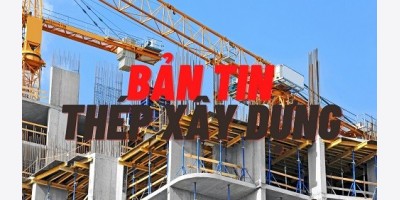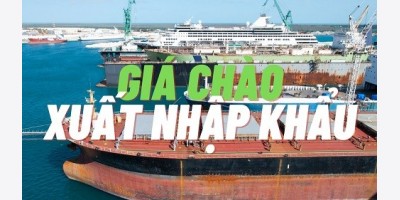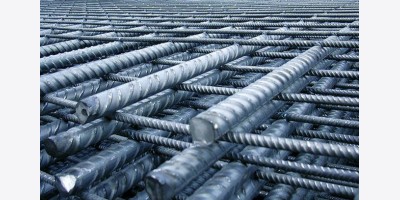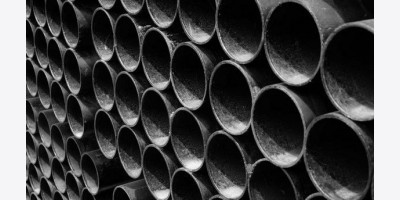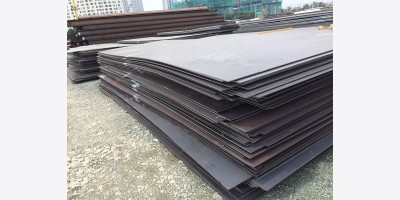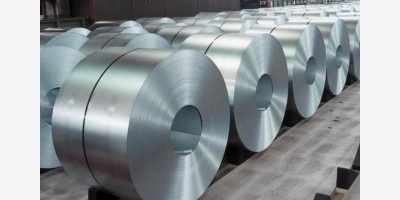| Algerian buyers cautious as rebar prices turn down | ||
| The beginning of the week has been marked with a cautious return to the rebar market of the Algerian buyers, after prices decreased by further €5-10/metric ton late last week in comparison to the week before, market participants said. Buyers are still closely monitoring the prices and most are waiting to place orders mainly for two reasons: the expectations of further lower prices after scrap prices declined for February settlement in Europe, and the bad weather that is present since last week in Algeria causing problems of shipments delays and on building site, local sources said to Platts. Four traders just at the end of last week confirmed rebar transactions closed at €470/mt FOB south European ports; on Monday one trader confirmed to have closed at the same price two orders, and two local sources confirmed the same numbers. On the CFR conversion sources said that the level is at the moment around €495-500/mt CFR Algerian ports. It is understood that the same downtrend has been experienced for the billets with offers from Ukraine at $560/mt CFR Algerian ports(see separate article). In the local market the rebar prices decreased as well to DZD 59,000-60,000/mt 7% tax included, with wire rod at DZD 69,000/mt with 17% tax.
| ||
| Turkey gets higher HRC import offers, local mills to follow | ||
| CIS countries have raised their export offers for hot rolled coil to Turkey for March rolling. Ukrainian mills’ HRC prices are reported at $570-580/metric ton FOB, while Russian mills’ offers are higher at $580-590/mt FOB; however, no transactions have yet been heard at these levels, participants told Platts on Monday. “Current CIS HRC offers could play a role in increasing local prices in the near-term; however, at the moment these offers can only be attractive for tube and pipe producers in Turkey, who can make use of the inward processing regime [which exempts them from import duty]. Local HRC spot prices are at $625-630/mt ex-works; but with import duty taken into account, CIS mills’ offer prices exceed local prices,” a trader said. “There was a downward correction of $10/mt in local HRC prices last week due to weak demand. Buyers were in a wait-and-see mode. They could return to the market this week, in which case local producers can push for prices above $650/mt ex-works again,” another trader observed. Meanwhile, producers of hot-dip galvanized coil and colour-coated galvanized coil (PPGI) already raised their prices $20/mt at the beginning of the week, but demand remains low with few transactions reported. 0.5mm thick HDG is currently selling at $830-850/mt ex-works. Producers are asking for $950-970/mt ex-works for 0.5mm thick 9002 code PPGI, and $730-740/mt ex-works for cold rolled coil, Platts heard.
| ||
| US coil prices rise again; European plate, rebar drop - TSI | ||
| The latest reference prices released by The Steel Index (TSI) at the start of this week show that all its US coil prices rose again since last week, continuing the previous week’s turnaround. European coil prices were mixed since a week earlier. US plate, European plate and rebar prices were sharply lower. The average of daily US HR coil reference prices FOB Midwest mill increased by a dollar to $621/short ton ($685/metric ton). CR coil price gained by 0.8% and HD Galvanised coil price increased by $7/st. The 4-week rolling average delivery lead-times for HR and HDG coils are unchanged since last week. US plate reference price FOB Midwest mill was $13/st lower at $723/st ($797/mt). In northern Europe, the average of daily HR coil reference prices was €4/mt above last week's average. CR coil price slipped by 0.7%, while HDGalvanised coil reference price dropped by €9/mt to €573/mt ($774/mt). 4-week rolling average lead-times for CR and HDG coils are longer than last week. Northern European plate price ex-works decreased by 2.4%. The average of daily HR coil reference prices ex-works in southern Europe slipped by €2/mt from last week's average. CR coil reference price was €6/mt higher at €574/mt ($775/mt) but HDG coil price was 0.9% lower. 4-week average lead-times for all coils are longer. Southern European plate reference price dropped by €14/mt to €508/mt ($686/mt). The northern European rebar reference price ex-works fell by €16/mt to €497/mt ($671/mt). The average of Platts FOB Black Sea export billet prices for last week slipped to $524/mt, so the rebar-billet spread dropped to $147/mt. The southern European rebar price fell by 1%. Companies wishing to receive TSI's full set of reference prices can apply on TSI's website www.thesteelindex.com .
| ||
| China's Qinggang starts relocating to coastal site | ||
| Qingdao Iron & Steel (Qinggang) kicked off its relocation project on February 6, after receiving approval from the National Development & Reform Commission (NDRC), Platts confirmed with the Shandong province-based eastern Chinese steelmaker. Qingdao city government formally launched the project to relocate the steelworks to the coastal Dongjiakou Heavy Industrial District outside the urban area of Qingdao, a company source said. The new project is designed with a pig iron capacity of 4.17 million metric tons/year, crude steel capacity of 4.17 million mt/y and 4 million mt/y of finished steel including bar and wire rod. This is similar to Qinggang's current capacity. As Platts previously reported, the new integrated steelworks was set to be completed by 2015. But the company source was not clear about the schedule for full closure of the old urban plant. According to relocation details disclosed by the mill, most facilities at Qinggang’s old plant will be scrapped, apart from two wire rod mills with a combined capacity of about 1.5 million mt/y. These would be dismantled and re-installed at the new site. Shandong has also been pushing forward construction on Shandong Iron & Steel (Shangang)’s 8 million mt/year greenfield integrated steelworks project in coastal Rizhao city. This is part of a plan to lift the province's proportion of steelmaking capacity on the coast to about 43% by end-2015. The province aims to reduce its overall crude steel capacity by more than 10 million mt/year to about 50 million mt/y by 2015.
| ||
| Essar Steel Minnesota, ArcelorMittal USA sign pellet deal | ||
| Essar Steel Minnesota has entered into a 10-year iron ore pellet off-take agreement with ArcelorMittal USA. The agreement, which is expected to commence between October 2013 and March 2014, calls for Essar Steel Minnesota to supply 3.5 million mt of standard and fluxed iron ore pellets on an annual basis to ArcelorMittal's North American steelmaking operations. Essar Steel Minnesota mines iron ore out of its operations in the Mesabi Iron Range in Minnesota for use by third parties, as well as its Canadian sheet and plate mill, Essar Steel Algoma. Both Essar Steel Minnesota and Essar Steel Algoma are part of India's Essar Group. The company is currently constructing a $1.7 billion, 7 million mt/year iron ore pellet plant in Minnesota that is expected to be completed by the third quarter of this year. "We are pleased to enter into this long-term off take agreement with (Essar Steel Minnesota)," ArcelorMittal USA executive VP for finance, planning and procurement John Brett said in a statement. "This off-take agreement is consistent with our strategy of securing long-term supply of critical raw materials within the region, and it provides material that meets the stringent standards of our blast furnaces. (Essar Steel Minnesota's) ability to provide different types of pellets provides us the flexibility to utilize the product at multiple furnaces." Essar Steel Minnesota has the ability to provide standard, flux and DR (direct reduction) grade pellets, making it the only miner capable of producing the three types of pellets in the US. The company has around 2 billion mt of measured, indicated and inferred magnetite resources in the US.
| ||
| Indian scrap import prices slip, rebound may come soon | ||
| Containerised shredded scrap prices into India slipped below $420/metric ton slightly as demand is weak, but with severe weather possibly disrupting supply on the US east coast, there may be a rebound on the way. An Indian buyer said that US prices had maintained at around $420-425/metric ton CFR Nhava Sheva whilst a US-based trader said that prices for shredded to Nhava Sheva were offered at around $375-$378 FAS, suggesting prices were closer to the previously reported $416-418/mt CFR Nhava Sheva sales prices from the UK. “To Nhava Sheva freight rates are falling between $37.50 and $42.50/mt depending on what line you are using. In short, the [FAS and CFR] prices are very much similar,” he said. He also suggested that US offers to Turkey for HMS 1&2 80:20 were still around $385-390/mt CFR Turkey though no transactions were confirmed. The Platts daily assessment for this product was unchanged on Monday at $390/mt CFR Turkey. Whilst the market is described as “dull” and there is no real reason for demand to increase at present, prices could be driven up by the snow storm on the east coast limiting supply and disrupting freight. “US sellers feel their market has bottomed and with some super storm expected to hit the US East Coast, they feel prices will move up,” an Indian trader said late last week. A source in the US pointed out that storms do not always correlate with a rise in scrap prices due to other variables with the freezing weather more applicable. “When waterways start to freeze up that is when you will usually see the price in scrap rise, because it reduces the amount of sources that are available. Combining that with the cost of transportation rising, then your scrap rises.”
| ||
| India's BSL looks to secure pellets for Odisha steelworks | ||
| India’s Bhushan Steel Ltd (BSL) is looking to secure iron ore pellets from a local supplier for the 6 million metric tons/year integrated steelworks it is setting up at Dhenkanal in the eastern state of Odisha, a state government document issued late week showed. BSL has sought approval from the Odisha state government for a “conversion arrangement” the steelmaker plans to sign with local iron ore pellet producer Sree Metaliks. Under the proposed arrangement, BSL would purchase iron ore fines from miners operating in the Joda and Keonjhar mining districts and supply the ore to Sree Metaliks. Pellets produced by the latter would be fed to BSL’s integrated works at Dhenkanal. A New Delhi-based BSL official said Monday that a final agreement was yet to be inked and declined further details. BSL is also in talks with state-owned Orissa Mining Corporation for the supply of some 3-3.5 million mt/year of iron ore to the steelworks, but an agreement is yet to be signed, the official added. BSL’s Meramandali works presently hosts a 2.3 million mt/y blast furnace and 300,000 mt/y of direct reduced iron production capability. Output from these units is fed to a 2.5 million mt/y twin-shell Conarc furnace supplied by SMS Siemag. A second blast furnace, with 3 million mt/y capacity and supplied by Paul Wurth, is scheduled to begin commercial operations by early March. Sree Metaliks operates a 600,000 mt/year pellet plant in Keonjhar. It also produces sponge iron, billets and rebars at plants in Keonjhar and Angul, the company’s website said. Officials could not be reached for comment.
| ||
| India's Lanco drops ferroalloys project on power crisis | ||
| Indian pig iron and ductile iron pipe producer, Lanco Industries Ltd, has withdrawn a proposal to build to a ferroalloys plant in the southern state of Andhra Pradesh owing to an “anticipated hike in power tariff in near future” and the prevailing electricity shortage there, the company announced to the Bombay stock exchange Saturday. Project plans were mooted two years ago, in January 2011, when Lanco Industries said it had secured board approval to set up a 10,000 metric tons/year ferroalloys plant with an investment of Rupees 400 million ($7.5 million). Andhra Pradesh’s power crisis stems from a supply shortage of gas and water. As Platts has reported, secondary steelmakers and ferroalloy producers in the state had to cut output by nearly 70% through 2012 owing to electricity supply cuts and rising power tariffs. The state has more than 40 ferroalloy plants and 200 induction furnace-based works with finished steel capacity totalling 1 million mt/y, according to earlier estimates from the Federation of Andhra Pradesh Chambers of Commerce & Industry. State-owned Rashtriya Ispat Nigam Ltd, which operates a 6.3 million mt/y integrated works at Visakhapatnam, is also said to have suffered production cuts of as much as 50-60% throughout this fiscal year owing to the power crisis, local media reports said, though this could not be immediately confirmed. Lanco Industries’ manufacturing facilities are located in the state’s Chittoor district with pig iron and DI pipe production capacities of 225,000 mt/y each, the company’s website said. Company officials were unavailable for comment by press-time Monday.
| ||
| Antwerp port signs collaboration agreement with Russia | ||
| The port of Antwerp will collaborate closely over the next five years with Rosmorport, the state-owned company that acts in the interests of all Russian seaports, Platts learned from the Belgian port which is Western Europe’s largest steel port. The agreement is for a period of five years after which it can be renewed, and it is understood that this agreement will have implications for the people who ship steel through Antwerp. “At the beginning we will collaborate in the fields of port development, expansion of the transport and logistics networks. In a second phase we expect that this will lead to increase the traffic of goods between Antwerp and Russia”, Antwerp port’s spokeswoman told Platts. “We see potential in the steel side mainly from the Saint Petersburg area. Overall the traffic from Russia to Antwerp is mainly for flat products and we see a growth on this side, while from Antwerp to Russia we see potentiality for mining equipment and oil and gas”, she said.
| ||
| Icdas raises rebar and wire rod prices on reviving demand | ||
| Turkish long steelmaker Icdas has hiked prices of rebar and wire rod by $17/metric ton valid from Monday, owing to increasing demand, Platts learned from market sources. Icdas announced its sales price for 12-32mm diameter rebar at TRY 1,290/mt ex-works ($726). Its price for 10mm dia rebar reached TRY 1,300/mt ex-works ($723), while 8mm dia rebar is at TRY 1,310/mt ($737) ex-works. These prices all include 18% VAT. The new levels represent a TRY 30/mt ($17) increase on the company’s previous price list. The company also increased its wire rod prices by TRY 30/mt ($17) to 1,330-1,390/mt ($749-782) ex-works, including 18% VAT. The increase by Icdas follows some recovery signs reported by sources in the Turkish rebar export market. One source confirmed a sale of some 17,000 mt of rebar on Wednesday last week to a Turkish contractor for Iraq, a market which could prove to be strategic for the Turkish longs producers in the coming weeks if it picks up. On Monday the daily Platts assessment for rebar exports from Turkey increased some $3/mt, to $598/mt FOB.
| ||
| ArcelorMittal Warszawa back in operation | ||
| The longs mill of ArcelorMittal located in Warsaw, Poland, re-started operating last week, following a temporary closure of both the melt shop and rolling mill at the end of January, a company spokesperson told Platts. The melt shop re-started on Wednesday 6 Ferbruary, while the rolling mill re-started producing on Friday 8 February, the spokesperson said. The plant produces rebar, round bar, flats and angles. The temporary idling was linked to the persistent issue of VAT frauds on import of rebars into Poland, as reported. A local association estimated that some 40% of the rebar coming in the country could come from illegal sources. The ArcelorMittal spokesperson stressed that the issue of the VAT avoidance is not resolved yet, but the company is still working closely with local authority to address this issue. Nevertheless the mill has no plans to idle again production in the near future, the source added.
| ||
| Steel supply pre-qualification launched for new gas pipeline | ||
| Nabucco Gas Pipeline International has launched the pre-qualification process for steel pipe suppliers to its 1,320km, 48 inch diameter Nabucco West pipeline, which will transport natural gas from the Turkish-Bulgarian border to the Central European gas hub at Baumgarten, Austria. Steel pipe requirement for construction of the pipeline will depend on design options but is estimated to be over 700,000 metric tons, a Nabucco spokesperson told Platts. “Part of the prequalification process will require suppliers to provide evidence of a consistent strong-proven experience of manufacturing and successfully delivering line pipe for gas or oil pipeline of the required scope, at least of the grade and/or wall thickness of the scope. In addition, suppliers will also need to demonstrate they have appropriate manufacturing facilities and quality control procedures. Consequently, responses to the prequalification questionnaire and the invitation to bid will be accepted from individual companies and consortia but not from traders unless they are an affiliate of a pipe/steel mill,” the contract notice states. Nabucco West will connect to the Trans Anatolian Pipeline (TANAP), which will carry gas from Shah Deniz in Azerbaijan to Turkey. Expressions of interest to participate in pre-qualification must be submitted by March 4.
| ||
| Saarstahl doubles capacity with new refining unit | ||
| German engineering steel producer Saarstahl has opened a secondary metallurgy unit at its site in Völklingen in southwest Germany, the company announced in a statement. The facility, which went into operation on 28 January, will more than double the plant’s refining capacity to 2.7 million metric tons/year. Saarstahl said it was also planning to extend its product range but did not disclose details of specific grades, saying only that it will supply “new, innovative products for the automotive sector.” Work on the unit, which began in September 2010 and cost €150 million, included the installation of two twin ladle furnaces, a vacuum degassing plant, an injection unit, a central alloying plant, water supply system and a central dust removal system. Martin Baues, Saarstahl’s head of engineering and technology, said: “This secondary metallurgy is unique in the world with regard to its complexity, method of construction and multi-functionality.”
| ||
| German steel economy in 'light recovery': WV Stahl | ||
| The German steel economy is going through a modest recovery, according to the industry association Wirtschaftsvereinigung Stahl. Figures released by the association yesterday showed that Germany’s crude steel production in January increased year on year by 5% to 3.6 million metric tons. It is the fourth month in a row that crude steel production rose on the previous year’s levels after falling for twelve consecutive months. More detailed figures on Germany’s production throughout 2012 revealed divergent levels between flat and long products. While the production of long products increased slightly y-o-y by 0.7%, hot rolled flat products decreased by 6%.
| ||
| ArcelorMittal denies plan to divest from Algerian works | ||
| ArcelorMittal has denied having any plan to divest its majority stake in the Algerian integrated steelworks located in Annaba, according to a company statement received by Platts Monday. At the end of last week, local press reports in Algeria mentioned the possibility that Sider, the national government body controlling 30% of the plant, was planning to increase its stake to become a majority shareholder and boost steel output at the plant. ArcelorMittal confirmed that the company is currently in discussions with the Algerian ministry of industry to finalise investments aimed at increasing steel production at the Annaba works. Vincent Le Gouic, the company’s vice president North Africa, said: "We are committed to the development plan proposed for ArcelorMittal Annaba, and our relationship with our co-shareholder Sider is extremely constructive as we plan for a strong future for the site". In 2012 Annaba fell short of its crude steel production target, with an output of just over 570,000 metric tons of crude steel, slightly below 2011 output. The company has launched its investment program aiming at taking the crude steel capacity at Annaba to some 1.4 million mt/year by 2014, in response to the strong domestic demand and the intention of the local authorities to make the country self-sufficient in steel products. Currently Algeria is a major importer of steel.
| ||
| Turkish automotive production declined 2.2% y-o-y in Jan | ||
| Turkish automotive production declined 2.2% year-on-year in January to 82,509 vehicles, mainly due weakened demand from Turkey’s main export market of Europe, according to the Turkish Automotive Manufacturers’ Association (OSD). According to OSD’s monthly Turkish automotive sector report, domestic vehicle sales numbered 37,139 units in January, up 19% y-o-y; but exports that month were down 12% y-o-y to 40,070 vehicles. The decline in Western European demand continued to affect Turkish automotive exports negatively. Turkey’s exports to this region fell 9.5% y-o-y in January. Although buying from Germany, France, Spain and Italy declined, demand from UK strengthened. Automotive steel suppliers and steel service centers hope for a better automotive sector performance in 2013, as Turkey’s central bank loosens its monetary policy and aims to turn the economy back into a period of domestic consumption-driven growth, as previously reported. However, an upturn in demand from the European export market foreseen in the second quarter will be the main factor in Turkish automotive sector growth, sources told Platts on Monday.
| ||
| CIS billet tender for March loading down $5/mt m-o-m | ||
| The tender for the sale of billets from the Belarus producer BMZ was concluded at the end of last week at a level of $520/metric ton FOB Black Sea (100% pre-payment) for end of March loading, according to sources in the market. This represents a $5/mt drop compared with last month’s indication. As previously reported, the mill was targeting to keep its sale level at some $525/mt FOB Black Sea, but the weakness of the market and the lower bids have pulled the transaction price down slightly. Meanwhile trade sources continued reporting bids from buyers being at some $515-520/mt FOB Black Sea at the beginning of this week, as demand is slow and the fundamentals remain weak. Sources in North Africa noted that the latest offers from Ukrainian suppliers stood at $560/mt CFR. One source noted that bids from Turkish buyers might even be below the $515/mt FOB mark, to compete with the current offer from domestic suppliers. “The market is waiting for more clarity from the scrap prices,” a trader noted. On Monday the daily Platts billet assessment moved down $5/mt to $520/mt FOB Black Sea.
| ||
| CIS engineering steel prices steady in February vs January | ||
| The CIS engineering steel market has remained level this month. Leaving aside a decline in offers for small-diameter bars from Ukrainian mills, most steelworks continue to apply January prices for their February output, Platts heard from four trading and producing sources. “We have just started to see some improvements, but these relate to sales volumes only. This is good news but not yet enough to move the price”, one of the producers said. “Still, orders we get suffice to cover only two or maximum three weeks of operations”, the steelmaker added. March is the month when mills hope to see volume improvements translated in prices. February saw a prolongation of January levels which for Russia-made 32-80mm hot rolled round bars in the common carbon steel grades are in the region of Roubles 17,800-19,300/metric ton ($590-640) with the highest prices of Roubles 20,000/mt offered by Volgograd special steelmaker Red October. All prices are on ex-works basis excluding 18% value added tax. “Red October is increasingly concentrating on the alloyed, special and stainless steel making. Offering such a price for carbon steel bars it regulates orders for the product it is least interested in”, an industry source told Platts. For 14-30mm diameter bars produced in Ukraine for the domestic market, mills decreased their offers to Hryvnas 5,090-5,190/mt ($627-640) ex-works/ex-warehouse excluding 20% VAT.
| ||
| Blast at Russian coal mine kills 17; mining partly suspended | ||
| Mining operations were partly suspended at Vorkutinskaya coking coal mine in northwest Russia after a methane explosion on Monday morning left 17 miners dead and one missing. Vorkutinskaya is operated by Vorkutaugol, part of mining and steelmaking company Severstal, and has an annual capacity of 1.8 million metric tons of crude coal and 1 million mt of washed coking coal. Based in Russia’s northwestern Komi republic, Vorkutaugol operates five mines: Vorkutinskaya, Vorgashorskaya, Zapolyarnaya, Komsomolskaya and Severnaya, and open pit Yunyaginsky. In 2012, their combined output of washed coking coal amounted to 5.3 million mt.
| ||
| SSAB Iowa plate mill to undergo 8-15 day outage | ||
| SSAB Americas will be undergoing an 8-15 day outage over the last two weeks of March at its Montpelier, Iowa plate mill. The outage is for routine maintenance, according to a company spokesperson. The mini-mill has annual capacity of 1.25 million short tons. “This should help tighten up pricing,” one northeastern US service center source said of the shutdown. Plate prices in the domestic market have been on a downward trend since May 2012 with prices currently in the range of $690-710/st on an ex-works basis.
| ||
| MST completes $6 million pickle house expansion | ||
| MST Seamless Tube & Pipe has wrapped up its $6 million pickling line expansion in South Lyon, Michigan, boosting its production by about 450 short tons/month. MST began construction on what is now its fifth pickle house in South Lyon in October 2012. “The completion of this project represents MST’s continued dedication and drive to improve its already world-class service for its global customer base,” said operations vice president Les Whitver. “By reducing material costs and increasing total production capacity by approximately 13%, this investment will serve to expand the capabilities MST can offer.” MST produces about 40,000 st of tubular productives in South Lyon annually.
| ||
| US crude steel output, utilization register small gains | ||
| US weekly crude steel production and capacity utilization registered a modest gain last week, according to American Iron and Steel Institute data Monday. In the week to February 9, US mills produced an estimated 1.82 million st of crude steel, up 1.2% from the 1.8 million st produced a week earlier, the AISI said. Capacity utilization last week rose to an estimated 76.1% from 75.2%. Last week's production was the highest weekly total seen so far this year. However, output last week was still trailing that of the equivalent week in 2012, when US mills produced just over 2 million st at a capacity utilization of 80.7%, the AISI figures showed. In the first seven weeks of this year, US mills produced an estimated 10.83 million st of crude steel at an estimated capacity utilization of 75.2%, down 6.7% from the 11.6 million produced in the corresponding 2012 period at a capacity utilization of 79.1%. Last week, output rose in three of the five AISI regional groupings and fell in two. The increase was led by the Southern region, where production rose to 639,000 st - up 4.93% from 609,000 st produced in the previous week. Output in the Midwest rose by 2.36% to 260,000 st, from 254,000 st. The Western region saw production rise 1.16% to 87,000 st, from 86,000 st. Production fell in the Great Lakes region last week to 642,000 st, down 2.28% from 657,000 st, and slipped 0.51% in the Northeast to 194,000 st from 195,000 st. The AISI estimates its weekly production and capacity utilization figures from returns from around 50% of domestic producers, combined with monthly production data from the remainder. Capacity for the first quarter of 2013 is about 30.8 million st compared with 32.3 million st for the first quarter of 2012. Production capacity for 2013 reflects the closure of several steelmaking facilities in 2012, new facilities coming online and improvements made to existing facilities to increase their capacity, the AISI said in its latest production report.
| ||
| AISI touts pro-steel policies ahead of Obama's speech | ||
| The largest steel trade group in the US unveiled its 2013 policy agenda Monday, in advance of President Obama's State of the Union speech scheduled for today. The American Iron and Steel Institute's board of directors approved a set of policy priorities it said in a statement are "part of an aggressive strategy by AISI and member companies to promote a strong steel industry and robust manufacturing sector." At the top of AISI's agenda was international trade and the intention to "urge the US government to challenge foreign trade-distorting practices that have led to a recent surge in imports; expand rules-based trade through existing and new trade agreements; (and) support passage of legislation ... to address antidumping and countervailing duty order evasion, circumvention and fraud." The organization also is seeking congressional tax reform proposals that would reduce the burden on manufacturers, enactment of energy and climate policy that "takes into account global competition" and reauthorization of legislation guaranteeing long-term financing for infrastructure, among other items. "The manufacturing sector is facing significant challenges to its international competitiveness due to burdensome tax rates, energy costs, inadequate investment in infrastructure, increased regulation and foreign unfair trade practices," AISI CEO Thomas Gibson said in a statement. "A national pro-manufacturing agenda is necessary to ensure all US manufacturers - including the steel industry - are able to compete in today's global economy."
| ||
| HRC imports jump 33% in Costa Rica in December | ||
| Costa Rica imported 10,138 mt of hotrolled coils in December, representing an increase of 33% compared with 7,618 mt the previous month, according to data from the country's central bank. In full-year 2012, these imports totaled around 205,000 mt. The average price paid by Costa Rican importers in December was $615/mt CIF. Japan was the main exporter at 5,762 mt ($611/mt CIF). Cold-rolled coil imports, on the other hand, fell from 8,551 mt in November to 7,653 mt in December. For all of 2012, 203,000 mt of the product were shipped to Costa Rica. The average CRC price was $711/mt CIF in December, and the main supplier was South Korea (4,875 mt, average $702/mt CIF). ArcelorMittal, the only steelmaker currently operating in the country, produces only long products, which are not represented in the Costa Rican import data.
| ||
| Brazil to open comment period for higher import taxes | ||
| Brazil's chamber of foreign trade, Camex, announced it will soon open consultations with the public regarding the new planned list of 100 products that may be subject to higher import tariffs in the country. The new list aims to include products negatively impacted by imports "for reasons of commercial imbalances arising from the international economic situation," said Camex. Upon opening of consultation period, interested companies/sectors will have 30 days to submit comments. As reported, Brazilian steelmaker CSN is looking forward to seeing tarriffs raised for cold-rolled and hot-dip galvanized coils. In October, Brazil increased import tariffs on 100 products, including several steel products, but not value-added sheet. The duties were increased from 12% to 25% and are valid for 12 months, with the possibility of a one-year extension. Steel products on this new list may include some types of hot-rolled coil, plate, wire rod, wire, bar, rail and welded and seamless tubes.
| ||
| Iraq confirms steelworks revamp, capacity set at 1.3mil mt/y | ||
| Iraq’s ministry of industry and minerals has confirmed that it has finalised a $700 million contract with Turkish industrial group United Brothers Holding (UB) to revamp and upgrade Iraq’s State Company for Iron & Steel (SCIS), which has been out of action since April 2003. SCIS, located on the southern outskirts of Basra, had a design capacity of 440,000 metric tons/year of 12-32mm diameter rebar and round bar. It achieved its highest output of 200,000 mt in 1989 before the first Gulf war. Limited operation was carried out between 1991 and 2003 before the mill was shut due to lack of funding. The plant will be revamped in three stages. The first – due for completion in the third quarter of 2014 – will see a new 820,000 mt/y 8-32mm diameter rebar mill installed, along with electric arc furnace meltshop and 130-150mm square billet continuous caster. Thereafter melting capacity will be doubled to over 1 million mt/y and billet output expanded to 130-180mm with an additional caster. A 250,000 mt/y medium sections mill will be installed for production of IPE, IPN and UPN 80-160 sections, as well as 60-70mm angles. SCIS’s existing rolling mill will also be modified to produce up to 250,000 mt/y of light sections and rebar, giving the firm a finished long products capacity of 1.32 million mt/y by Q2 2015. In the final stage, the two direct reduced iron plants at the site will be dismantled and a new 1.2 million mt/y capacity DRI unit constructed, most likely using either ZR-Reformer or Midrex technology, a UB representative told Platts. The rehabilitation work is expected to be completed in Q2 2016. The contract stipulates that UB will also operate SCIS for a period of 18 years and train its staff. Profits from the plant will be divided between the Turkish company and Basra province, according to the ministry.
| ||
| Rajhi Steel restarts billet plant after 3-week suspension | ||
| Saudi Arabia's Rajhi Steel restarted production at its billet plant in Jeddah last week after it was ordered by local authorities last month to suspend output on account of not adhering to environmental regulations, a source at the company’s Riyadh headquarters told Platts on Monday. The steelmaker was forced to idle its 850,000 metric tons/year electric arc furnace-based billet plant in Jeddah’s southern suburb of Al-Khomra – in operation since 2007 – after the city municipality claimed it had not obtained a licence for the works from the environmental authorities, a claim the steel producer denied. Contrary to previous reports, Rajhi’s 750,000 mt/y and 300,000 mt/y rebar mills, as well as 250,000 mt/y wire rod mill at the site, remained unaffected. The steelmaker has been given a grace period of one year by authorities during which it must take measures to reduce the level of pollution around its Jeddah site. This will most likely involve the installation of a de-dusting plant, the source said. Rajhi also has a 500,000 mt/y bar mill in Riyadh, giving the firm a total longs capacity of 1.8 million mt/y. Even with a working billet plant, semi-product imports are therefore needed for feedstock requirement. The source hinted that billet procurement was stepped up while Rajhi’s works was idled.
| ||





